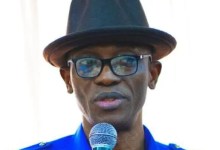CBEX Scam: The Perils of Greed

Once again, Nigeria finds itself caught in a cycle of financial turmoil as the collapse of the so-called Crypto Bridge Exchange has left over 600,000 citizens devastated, with a staggering N1.3 trillion vanishing almost overnight.
The architects of this latest Ponzi scheme have seemingly disappeared into thin air, taking with them the hollow promises they made and leaving behind tears, sorrow, and regret.
Despite significant losses from previous scams, Nigerians continue to fall prey to the same traps, driven by desperation and unchecked greed.
CBEX, operated in Nigeria by ST Technologies International Limited, appeared legitimate at first glance. It was registered with the Corporate Affairs Commission and listed with the EFCC’s Special Control Unit Against Money Laundering. However, that’s where its credibility ended.
CBEX functioned without a license from the Securities and Exchange Commission, yet it aggressively solicited public funds while promising outrageous returns of 100% within just 30 days.
Even after Hong Kong’s financial authorities issued a public warning against CBEX in April 2024 due to false licensing claims and unauthorized transactions, Nigerian regulators failed to intervene until it was too late.
The CBEX debacle is not an isolated incident; it is merely the latest in a long line of elaborate Ponzi schemes designed to exploit the gullible and the greedy.
The 1980s witnessed the rise of Umanah Umanah, who pioneered Nigeria’s Ponzi era.
The notorious MMM, with its Russian origins, defrauded three million Nigerians and collapsed in 2016, erasing over N18 billion of people’s savings. In 2022, MBA Forex vanished with over N213 billion under the guise of foreign exchange investment.
Since 2016, at least 50 Ponzi schemes have defrauded Nigerians of untold amounts.
These schemes often employ buzzwords like cryptocurrency, forex trading, and artificial intelligence—terms that many Nigerians barely understand—to entice victims.
The Nigeria Deposit Insurance Corporation estimates that more than N2 trillion has been pilfered from Nigerians by such dubious entities over the last decade.
While poverty, unemployment, and a struggling economy make Nigerians susceptible, it is ultimately greed, not ignorance, that fuels this epidemic.
Most victims are acutely aware of the risks involved but believe they can outsmart the system and cash out before disaster strikes.
Funds earmarked for property purchases, wedding expenses, tuition, and even stolen money from employers and relatives have been drained by Ponzi operators, all in pursuit of rapid profits.
This same mentality has contributed to the rise of sports betting, which is projected to generate in-country revenues of $590 billion this year, according to Statista.
Nigerians must confront the reality that there is no such thing as fast, risk-free wealth.
An offer of consistently high returns with a lack of transparency and regulation should be viewed as a red flag, not an opportunity.
Will Nigerians ever learn to recognize the folly of greed?
In addition to the scam artists, there are various enablers involved.
CBEX, similar to numerous scams that preceded it, thrived with the support of influencers, celebrities, pastors, and social media personalities who, for a fee, provided credibility and trust to a fraudulent scheme.
Promoters of these schemes must be held accountable. Influencers who promote Ponzi schemes should face legal, financial, and social repercussions.
There should be no justification for endorsing schemes that can devastate lives and livelihoods.
Regulators must also be vigilant in their responsibilities.
The enactment of the Investments and Securities Act of 2025 is a significant advancement, granting the SEC the authority to oversee digital asset platforms and imposing harsh penalties on operators of Ponzi schemes.
However, laws only matter when enforced proactively, not after the money is gone.
CBEX was missing from the blacklist issued by the EFCC days before it crashed. Regulators must monitor platforms in real-time, respond swiftly to red flags, and collaborate with global partners when warning signs emerge.
More importantly, massive public enlightenment campaigns are needed to stem this growing societal problem.
Nigerians must return to the traditional values of hard work as a foundation of enduring wealth.
Citizens should also be wary of pipe dreams sold as instant prosperity.













2 Comments